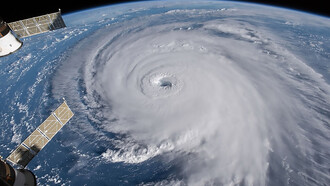A strike action continues across the Hollywood industry, a new issue has come to the forefront of negotiations: artificial intelligence (AI) and its use in content creation.
While the main focus of the strike may lie with working conditions, pay rates, and employee rights, the actors and writers are also making it clear that they don't want the studios to use AI in the development of their scripts and characters. This stance has come as a surprise to many as the use of AI has been growing in recent years, with some predicting that it could soon be commonplace in the industry. So why are the writers and actors so set against it?
At the heart of the issue lies creativity. Those in the industry argue that the use of AI would stifle the creative process and limit the diversity of stories being told. While AI may be capable of generating dialogue and scenarios, it lacks the intuition and human touch that make storytelling so compelling.
There are also concerns about the potential job losses that could come with the introduction of AI. If the studios can automate aspects of the creative process, then there could be a reduced need for writers and actors, leading to a loss of jobs and income for those in the industry.
Artificial intelligence (AI) is revolutionizing many industries, and the entertainment industry is no exception. From scriptwriting to post-production, AI is transforming the way movies and TV shows are made. In this article, we'll explore how AI is changing Hollywood and the movie and TV production process.
One of the most significant ways AI is changing Hollywood is in the area of scriptwriting. AI-powered software like ScriptBook and AI-Scripts can analyze scripts and predict their box office success with a high degree of accuracy. These tools use machine learning algorithms to analyze large datasets of past movies and identify patterns that are predictive of box office success. By analyzing a script's characters, plot, dialogue, and other elements, these tools can predict a movie's potential box office revenue, allowing studios to make more informed decisions about which projects to greenlight.
Another area where AI is having a significant impact on Hollywood is in visual effects (VFX) and post-production. Traditionally, VFX and post-production have been labor-intensive and time-consuming processes that require a team of artists and technicians to work on each shot in a movie or TV show. However, AI-powered software like NVIDIA's GauGAN and DeepMotion can now generate realistic 3D models and animations using machine learning algorithms that have been trained on large datasets of real-world images and videos. This technology can significantly reduce the time and cost of VFX and post-production, as it allows filmmakers to generate high-quality visuals with less human labor.
There are also concerns about the impact of AI on the entertainment industry. For example, some critics worry that AI-powered script analysis tools could lead to the homogenization of Hollywood movies as studios become more reliant on algorithms to predict box office success. Others worry that AI-generated VFX and post-production could lead to a reduction in the number of jobs available for artists and technicians in the industry.
Despite these concerns, it's clear that AI is already having a significant impact on Hollywood and the movie and TV production processes. From scriptwriting to post-production to audience engagement, AI is transforming the way movies and TV shows are made and experienced. As the technology continues to evolve, we can expect to see even more innovative and exciting uses of AI in the entertainment industry in the years to come.
The writers and actors have made their voices heard, and it remains to be seen how the studios will respond. With the strikes showing little sign of stopping, it seems that the issue of AI will continue to be a contentious one for some time to come. One thing is for sure, though: the creativity and storytelling that are at the heart of the Hollywood industry will always need the human touch.














